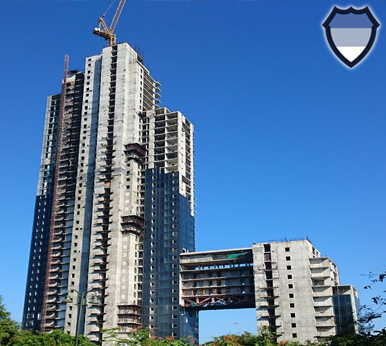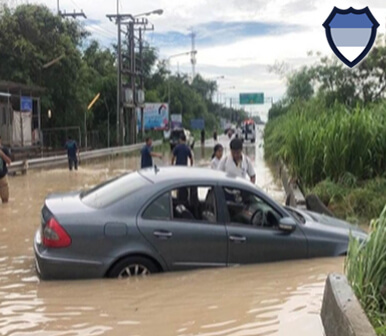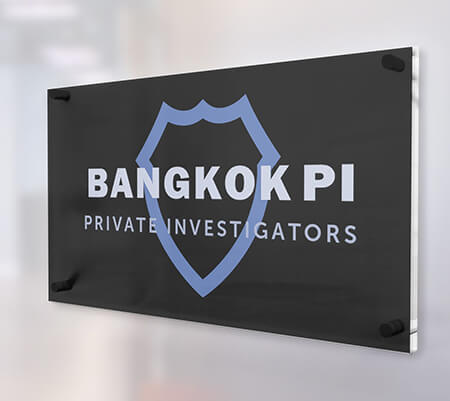Essential Tips to Avoid Property Scams in Thailand
August 31, 2021 - Reading time: 7 minutes
Updated: July 5, 2025
Thailand has long been a top choice for foreign investors looking to buy property, thanks to its tropical climate and beautiful landscapes. However, the Thai real estate market is also known for property scams targeting unsuspecting buyers. Whether you’re interested in buying a condo in Bangkok, a villa in Phuket, or land for development, it’s vital to understand the local laws, potential pitfalls, and the scams that can cost you thousands. This guide will help you avoid property scams in Thailand and make informed decisions when investing in Thai real estate.
At Bangkok Investigators, we specialise in protecting foreign buyers from fraud and shady practices in the Thai property market. While we don’t sell property ourselves, our background checks and surveillance services can help you vet developers, sellers, and agents before you commit to any purchase.
1. Do Your Due Diligence Before Buying Property in Thailand
Before signing any contract, thorough due diligence is essential. This includes verifying the property’s ownership, confirming clean land titles, and checking that there are no encumbrances or legal issues. Hire an independent property lawyer in Thailand who specialises in real estate law to help you navigate the process. Our background check services can also confirm whether the seller, developer, or real estate agent is legitimate and has a reliable track record in the Thai property market.
2. Be Wary of Off-Plan Property Developments in Thailand
Buying off-plan property in Thailand — that is, purchasing before construction is complete — is popular but risky. Many buyers have been left with unfinished or abandoned projects. Always investigate the developer’s history and financial stability. We can help you conduct thorough due diligence on off-plan developments in Thailand, including checking project permits, funding sources, and developer reputation.

Photo: The infamous Waterfront Suites condominium in Pattaya has remained derelict for over six years after construction was halted due to violations of approved building designs. It’s just one of many unfinished projects across the area — a reminder of the risks involved in off-plan investments.
3. Always Use a Reputable Thai Property Lawyer
Thai property laws can be complex and are often different from what foreign buyers are used to. Always hire an independent Thai property lawyer, not one recommended by the seller or developer. A good lawyer will ensure your contracts are legally sound and protect you from scams. We also recommend verifying your lawyer’s credentials through a background check to ensure they are qualified and reputable.
4. Avoid Nominee Ownership Schemes When Buying Land in Thailand
Foreigners cannot legally own land outright in Thailand. Some try to bypass this law using nominee structures — setting up a Thai company with local shareholders. However, this is often illegal if it’s purely to hold property. If discovered, it could result in property seizure. Instead, consider legal alternatives like long-term leases or buying a condo in a freehold development, which foreigners are allowed to own. Our team can advise on these legal structures and perform background checks on any nominees or companies involved.
5. Watch Out for Developers Promising Guaranteed Rental Returns
Some developers in Thailand lure buyers with promises of guaranteed rental returns. While these offers sound attractive, they’re often too good to be true. Check who is backing the guarantee, and whether it’s legally documented. We can investigate these developers, their financial records, and any history of defaulting on payments to help you avoid investment scams in Thailand’s property market.
6. Check the Property’s Utilities and Management Clauses
Some developers retain control over essential services like water, electricity, and maintenance fees, using them as a revenue stream. Before buying, ensure the contract clearly defines who controls utilities and common areas. Speak to current owners or tenants, and review maintenance fees carefully. Our background checks can also reveal if the developer or management company has a history of disputes or mismanagement.
7. Research the Local Area Thoroughly
Don’t rely solely on glossy brochures. Visit the property during different times of day and in different weather. Flooding during the rainy season is a real concern in Thailand, as are noisy construction projects that could affect your quality of life. Talk to local residents and check with local authorities about planned infrastructure developments that could impact property values.

Photo: Thailand experiences significant rainfall during the wet season. Be sure to investigate how well the infrastructure in your chosen area handles flooding and drainage.
8. Always Get a Signed Deposit Receipt or Contract
If you’re paying a deposit, get a properly signed receipt or contract that clearly outlines the amount, purpose, and conditions. Take photos of the transaction and the person receiving the payment. Without proper documentation, you may have little recourse if the seller denies receiving the deposit — a common scam in Thailand’s property market.
9. Talk to Local Residents Before Buying Property
Speaking with people who already live in the area can provide invaluable insights. Locals can warn you about shady developers, ongoing disputes, or hidden problems that no agent will tell you. This step is often overlooked but can be one of the most effective ways to avoid property scams in Thailand.
10. Use Our Background Check Services to Protect Your Investment
We specialise in thorough background checks in Thailand for real estate buyers. Whether you’re dealing with a developer, real estate agent, or contractor, we can help you verify their legitimacy and ensure they have no hidden problems. We also offer discreet surveillance services to help you monitor suspicious behaviour or gather evidence if you suspect fraud.
Conclusion
Investing in property in Thailand can be rewarding — but it’s crucial to protect yourself from scams. With the right approach and thorough background checks, you can make smart and safe property investments in Thailand. For more information, or to book a background check on any property developer, real estate agent, or lawyer, contact us at Bangkok Investigators.
Also, don’t miss our recent article on a new legal change affecting property leases in Thailand: Thailand Bans 90-Year Property Leases – What Expats Must Know.
Related Articles
Search
Bangkok Investigators

Discover more about Bangkok Private Investigators on our homepage or by visiting our About Us page.